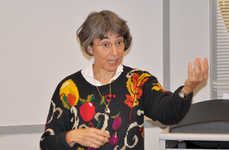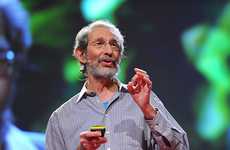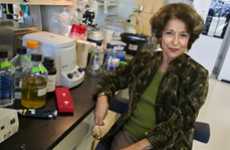
Susan Berry Keynotes
The keynotes by Susan Barry focus on neurobiology and vision studies. As a professor at Mount...

Need Inspiration?
Get inspired by 4,000+ keynote speaker videos & our founder, a top keynote speaker on innovation.
Susan Berry Discusses Dimensions in this Neurobiology Keynote
Jessica Marren — May 3, 2013 — Keynote Trends
Susan Berry is charming and candid as she talks about her personal experiences as a visually impaired individual who was able to repair her vision by relearning perception in this enlightening neurobiology keynote.
Through surgery and adaptive learning processes, Susan Berry successfully took her sight from highly impaired to capable of seeing life in three dimension. She attributes this remarkable transformation to the human brain's ability to adapt and change when it is properly trained and exercised.
This neurobiology keynote details the evidence that proves that the human brain can change rapidly. There is cellular evidence that shows us how malleable the brain is when the connections between the neurons and the synapses are asked to relearn and form new and different connections.
Susan was able to retrain her visual system with optometric vision therapy. She references her personal experiences and stresses the importance of changing actions in order to see a change in perception. She claims that in order for the brain to successfully adapt there must be a dialog between actions and perceptions.
Through surgery and adaptive learning processes, Susan Berry successfully took her sight from highly impaired to capable of seeing life in three dimension. She attributes this remarkable transformation to the human brain's ability to adapt and change when it is properly trained and exercised.
This neurobiology keynote details the evidence that proves that the human brain can change rapidly. There is cellular evidence that shows us how malleable the brain is when the connections between the neurons and the synapses are asked to relearn and form new and different connections.
Susan was able to retrain her visual system with optometric vision therapy. She references her personal experiences and stresses the importance of changing actions in order to see a change in perception. She claims that in order for the brain to successfully adapt there must be a dialog between actions and perceptions.
3.2
Score
Popularity
Activity
Freshness

















